By CAROL E. LEE and NAFTALI BENDAVID
President Barack Obama won a monumental legal victory Thursday when the Supreme Court upheld the vast majority of his health-care law, but the fight for public opinion—and votes in November—showed signs of growing more heated.
Mr. Obama can argue that he has secured long-held Democratic goals: Expanding health insurance to millions of additional Americans and limiting the power of insurers to deny coverage. That could help the president motivate core parts of his party's base that he needs for re-election, including college-educated women, younger voters and minorities.
But the ruling is likely to re-energize Republicans, who swept to a majority in the House in 2010 partly by attacking the health law as government overreach. The court also handed the GOP a new cudgel: It upheld the law's central plank by calling it a permissible form of taxation, giving Mr. Obama's opponents ammunition to argue he has imposed a new tax.
Photos
Timeline: The Health-Care Debate
Read a timeline of events surrounding President Barack Obama's health-care legislation, from the bill's path through Congress to the legal challenges.
Looking Back: Health Care in America
Read about past efforts to change how Americans receive and pay for health care.
Declaring the law a tax increase sets the stage for a reignited debate over the proper size and role of government, which has deeply divided the two parties.
Mr. Obama declared the ruling a historic victory while also vowing to work to adjust it, in an apparent nod to the law's unpopularity among many Americans. "We will continue to implement this law, and we'll work together to improve on it where we can," he said. "But what we won't do, what the country can't afford to do, is re-fight the political battles of two years ago or go back to the way things were."
Mr. Obama argued that the government should use its powers to fill basic social needs. The court, he said, had "reaffirmed a fundamental principle that here in America, in the wealthiest nation on earth, no illness or accident should lead to any family's financial ruin."
For Mitt Romney, the presumed GOP presidential nominee, the ruling could help drive to his side conservative voters who had been slow to warm to him. He argued the course left for opponents of the law is to unseat the president. "If we want to get rid of 'Obamacare,' we're going to have to replace President Obama," he said.
The Romney campaign said court decision immediately drove at least $2.5 million in donations Thursday to the candidate from more than 24,000 individuals. Other GOP groups predicted a strong response from the public. "This decision will drive Republican voter intensity sky-high," said Steven Law, president of American Crossroads, a group supporting Republican candidates.
Still, the opinion, written by conservative Chief Justice John Roberts, provides an undeniable jolt of energy for Mr. Obama, who has faced accusations from Republicans that he had squandered the political capital he had amassed when he took office, showing that he was too inexperienced for the presidency.
Many House GOP lawmakers appeared stunned Thursday as they headed into a closed-door meeting. "We're still digesting it, but it seems pretty disappointing," said Rep. Jim Jordan (R., Ohio), leader of the Republican Study Committee, a large group of conservative House Republicans.
More on the Court
Read more about recent decisions and see details on the justices.
Congressional Republicans said they would vote to repeal the law, as they did after taking control of the House in 2011. House GOP leaders scheduled a repeal vote for July 11. But there is little reason to believe the Senate, where Democrats hold a 53-47 advantage, would go along, especially after Thursday's ruling.
Democrats said Americans want to put the health care battle behind them. "We shouldn't waste time refighting old, old battles," said Senate Majority Leader Harry Reid (D., Nev.).
A number of GOP lawmakers seized on the court's rationale for upholding the key provision of the law requiring people to buy insurance or else pay a penalty—that it was a permissible use of the government's taxation powers.
Explore the Health-Care Ruling
- Supreme Court Upholds Mandate as Tax
- The Surprise Vote: Chief Justice Roberts
- Heard: Mixed Review From Health-Care Investors
- What Ruling Means for Consumers
- Opinion: The Obamacare Tax
- Health-Care Industry Gains Clarity
Read more about the Supreme Court's decision on the health-care law.
Senate Republican leader Mitch McConnell of Kentucky said, "The Supreme Court has spoken. This law is a tax." Americans for Prosperity, a conservative interest group, said it would launch an $8 million TV ad buy in 12 states Friday that will call the health law a tax hike, a spokesman said.
The White House moved to blunt the GOP attack, with officials arguing that the law would cut taxes for many families and small-business owners by providing tax credits to help them buy insurance. At the same time, there were indications Thursday that the candidates may not put the health care issue at the center of their appeals to voters, who consistently say they are most concerned about the economy.
Live Chat Recap
WSJ's D.C. deputy bureau chief Tim Hanrahan, health policy writer Janet Adamy, and legal editor Peter Landers took reader questions a few hours after the ruling. Replay the event.
The issue is complicated for Mr. Romney in particular. As Massachusetts governor, he signed a law for near-universal health care that is similar to Mr. Obama's. Mr. Obama made a point to note Thursday that, as governor, Mr. Romney supported an individual mandate, a point Obama aides said they would stress going forward.
Mr. Romney has argued that the federal government should allow states to come up with their own solutions to much of the health care challenge, as he did in Massachusetts. On Thursday he said he would keep several of the law's provisions as part of his reworking of it.
For one, he said a new law must "make sure that those people who have pre-existing conditions know that they will be able to be insured and they will not lose their insurance."
—Sara Murray, Siobhan Hughes and Danny Yadron contributed to this article.Write to Carol E. Lee at carol.lee@wsj.com and Naftali Bendavid at naftali.bendavid@wsj.com
A version of this article appeared June 29, 2012, on page A5 in the U.S. edition of The Wall Street Journal, with the headline: Obama's Big Legal Victory Sets Stage for More Battles.





![[image]](https://iza-server.uibk.ac.at/pywb/dilimag/20210113092156im_/http://si.wsj.net/public/resources/images/NA-BR362_HEALTH_G_20120628180229.jpg) Associated Press
Associated Press
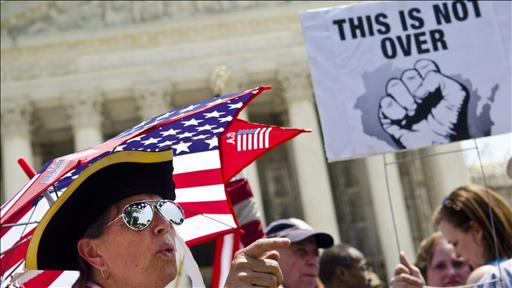
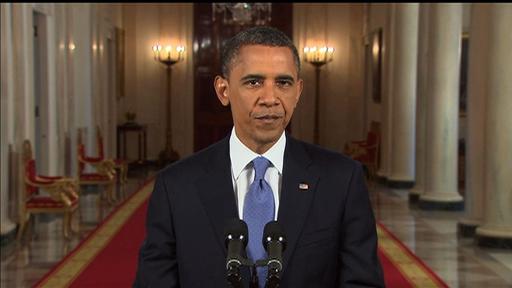
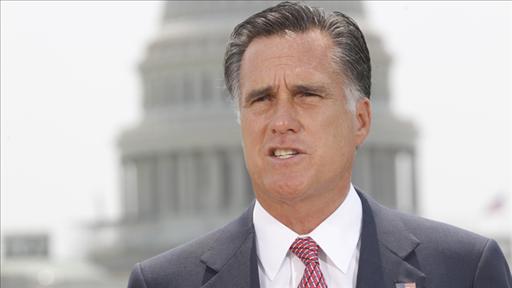
![[SB10001424052702304058404577494453634974844]](https://iza-server.uibk.ac.at/pywb/dilimag/20210113092156im_/http://s.wsj.net/public/resources/images/OB-TO193_0628sc_D_20120628092753.jpg)
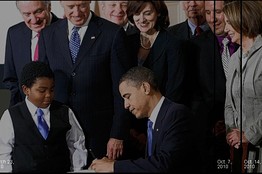
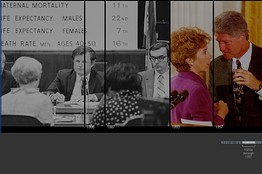
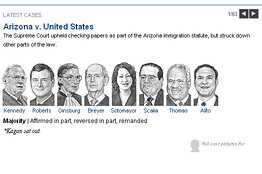
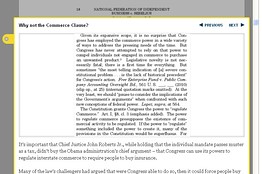



![[image]](https://iza-server.uibk.ac.at/pywb/dilimag/20210113092156im_/http://si.wsj.net/public/resources/images/MK-BV389_HOUGHT_C_20120701170025.jpg)
![[image]](https://iza-server.uibk.ac.at/pywb/dilimag/20210113092156im_/http://si.wsj.net/public/resources/images/MI-BP829_curry_C_20120701170605.jpg)
![[image]](https://iza-server.uibk.ac.at/pywb/dilimag/20210113092156im_/http://si.wsj.net/public/resources/images/NY-BT061_SWIM_C_20120701193212.jpg)
![[image]](https://iza-server.uibk.ac.at/pywb/dilimag/20210113092156im_/http://si.wsj.net/public/resources/images/P1-BG850_SCYTHE_C_20120629173254.jpg)
![[image]](https://iza-server.uibk.ac.at/pywb/dilimag/20210113092156im_/http://si.wsj.net/public/resources/images/OB-TO602_boxila_C_20120628203443.jpg)








Most Recommended
“Try and fathom the hypocrisy of ...;”
“Perhaps, Mr Gensert, it's not th...;”
“Another thoughtful and concise...;”
“However, Ms Napolitano immediate...;”
“My thought, exactly...You go on...;”